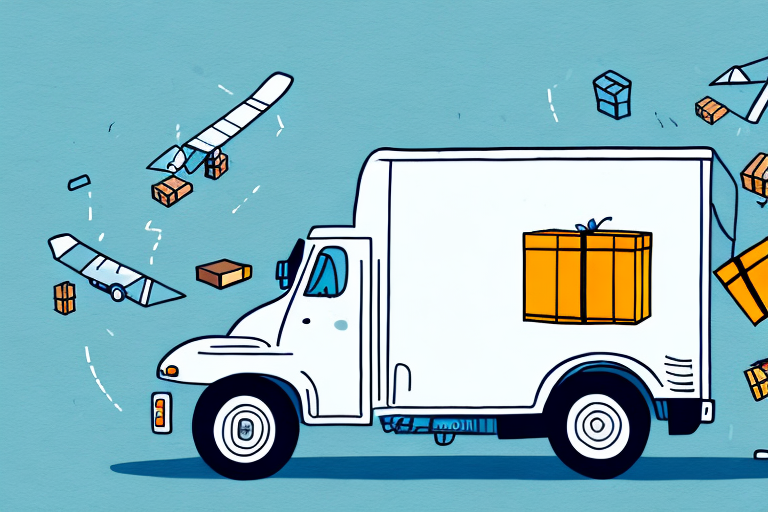The Benefits of Delivery and Shipping Services
Delivery and shipping services have fundamentally transformed the way we shop and conduct business. Offering a myriad of advantages, these services save time and money, enhance convenience, and ensure the safety of packages. This article delves into the numerous benefits of delivery and shipping services, incorporating the latest data and insights to provide a comprehensive overview.
Cost and Time Savings with Delivery Services
For Consumers
Delivery services eliminate the need for consumers to travel to physical stores, saving both time and transportation costs. According to a Statista report, online shopping can save consumers an average of 30 minutes per transaction compared to in-store shopping.
For Businesses
Businesses benefit from shipping services by outsourcing their logistics needs, which often results in bulk shipping discounts and reduced overhead costs. This allows companies to allocate resources more efficiently, enhancing overall productivity.
Convenience and Flexibility in Delivery Options
Door-to-Door Delivery
Door-to-door delivery offers unparalleled convenience, allowing customers to receive packages directly at their homes or offices without the need to visit a physical store. This service is particularly beneficial for managing returns and exchanges, as many providers offer pick-up services from the customer's location.
Package Tracking and Notifications
Advanced tracking technologies enable customers to monitor their packages in real-time, providing updates on delivery status and expected arrival times. Services like FedEx Tracking and UPS Tracking offer detailed tracking information, enhancing the overall customer experience.
The Vital Role of Shipping Services in E-commerce
Global Reach and Market Expansion
Shipping services are the backbone of e-commerce, allowing businesses to reach a global audience. This expansion into international markets can significantly increase a company's revenue and customer base. According to a eMarketer report, global e-commerce sales reached $4.28 trillion in 2020, highlighting the critical role of shipping in facilitating online commerce.
Balancing Speed and Cost-Effectiveness
E-commerce businesses must strike a balance between offering fast delivery options and maintaining cost-effectiveness. Innovations such as same-day and next-day delivery services cater to consumer demand for speed while leveraging bulk shipping to keep costs manageable.
Choosing the Right Delivery Service Provider
Pricing and Delivery Timeframes
When selecting a delivery service, it's essential to consider pricing structures and delivery timeframes. Providers like DHL and UPS offer a variety of shipping options tailored to different budget and time requirements.
Reliability and Customer Service
Reliability is paramount in the shipping industry. Opting for a provider with a strong track record and excellent customer service ensures that packages are delivered safely and efficiently. Customer support channels, such as phone, email, and live chat, can significantly impact the overall shipping experience.
Ensuring the Safety and Security of Packages
Tracking Technologies and Security Measures
Advanced tracking technologies and robust security measures are critical for maintaining package safety. Features like GPS tracking and tamper-evident packaging help prevent theft and loss. For instance, FedEx Security provides multiple layers of protection to safeguard shipments.
Specialized Packaging Solutions
Using specialized packaging materials, such as bubble wrap or foam inserts, protects the contents from damage during transit. Temperature-controlled packaging is also essential for perishable items, ensuring they remain fresh upon arrival.
Environmental Impact and Sustainable Shipping Practices
Green Logistics Initiatives
As environmental concerns grow, shipping companies are adopting green logistics initiatives to reduce their carbon footprint. Companies like UPS are investing in electric vehicles and optimizing delivery routes to minimize emissions.
Eco-friendly Packaging and Reduced Emissions
Using sustainable packaging materials and implementing practices like consolidated shipping help reduce waste and lower the environmental impact of shipping operations. According to a Global Balance report, eco-friendly packaging can reduce shipping-related waste by up to 40%.
Future Trends in the Shipping Industry
Technological Advancements
The future of shipping is poised to be shaped by technological advancements such as drones and autonomous delivery vehicles. These innovations promise faster and more efficient delivery methods, potentially revolutionizing the logistics landscape.
Post-Pandemic Changes
The COVID-19 pandemic accelerated the adoption of online shopping and delivery services. Moving forward, the industry is expected to continue evolving with a focus on enhancing delivery speed, reliability, and sustainability to meet changing consumer expectations.
Conclusion
Delivery and shipping services offer a multitude of benefits for both consumers and businesses, including cost and time savings, enhanced convenience, and secure package handling. As the shipping industry continues to evolve with technological advancements and sustainability initiatives, it remains a critical component of the global economy and the ever-expanding e-commerce landscape.



















